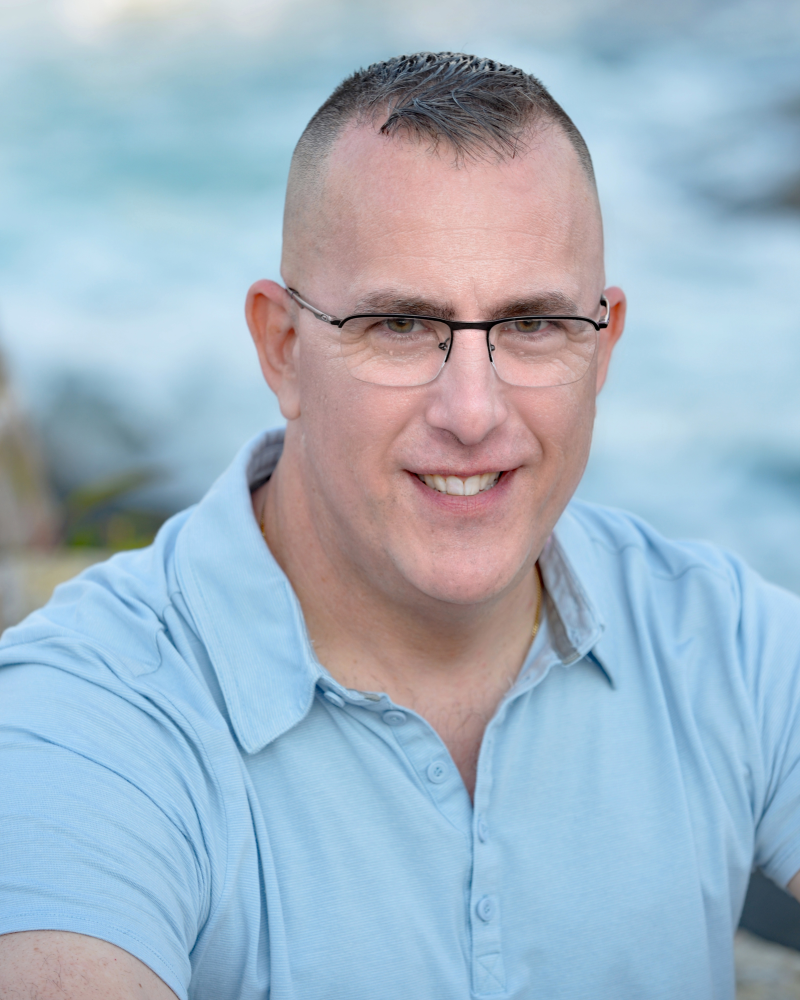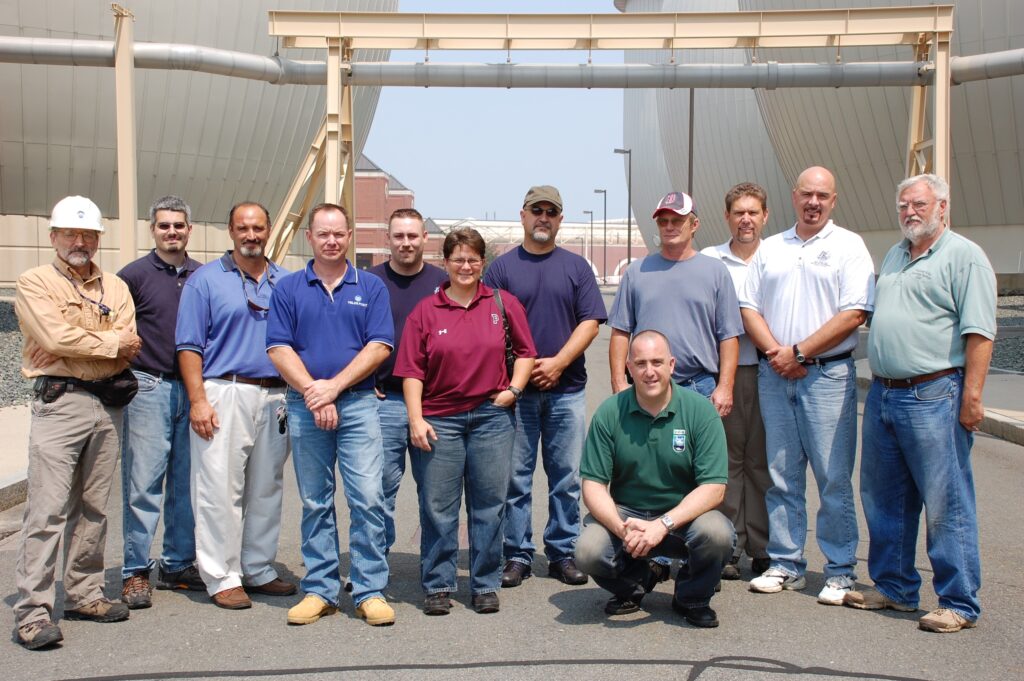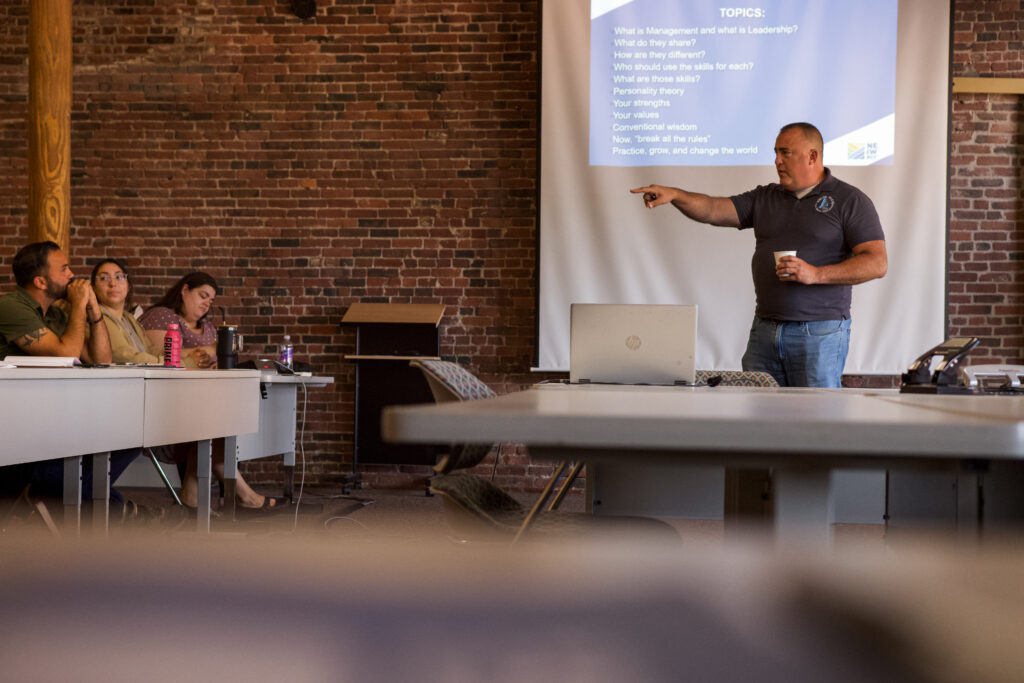By Beth MacBlane
In 2005, William (Bill) Patenaude, a principal engineer with the Rhode Island Department of Environmental Management’s (RIDEM) Office of Water Resources, served on an interview committee for a local wastewater treatment plant. During this process, he observed nervous candidates who were well-qualified for the role but lacked interview skills and management knowledge. This sparked the idea for a program to support rising professionals in the industry.

Rather than a one-day class model, Patenaude, who also served as a trainer for wastewater facilities, believed participants should meet regularly over time to network, learn and grow together. An 11-month long Wastewater Leadership Boot Camp emerged from his efforts, meeting for a full day each month to provide technical and non-technical leadership training, including elements and insights from the Myers-Briggs Type Indicator personality assessment model to inform individual strengths and leadership styles.
Officially launched in 2007 with funding from the U.S. EPA, the free RIDEM program continues to provide intensive technical training and professional development opportunities for municipal wastewater staff. While slight adjustments are made from year to year, the Boot Camp consistently includes job shadowing, interaction with environmental advocates and regulators, process control training, media relations, as well as a public-presentation requirement—all designed to help prepare the next generation of wastewater management leaders.
“One of the most gratifying things about boot camp was being part of the participants’ professional and personal development,” Patenaude said, “and we couldn’t have done it without the support of leadership at RIDEM and so many others.”

He used his extensive network to recruit guest speakers to the program, including NEIWPCC Environmental Engineer Jennifer Lichtensteiger.
“Bill approaches teaching with respect for his students and accountability – he sets high expectations of his students,” said Lichtensteiger. “Seeing the transformation of the students from the beginning of the management program to the end was remarkable. They came into the unfamiliar program unsure of themselves and, through Bill’s mentorship, grew into confident, capable leaders. He inspired his students to do well and find their own personal leadership style.”
After dedicating 34 years of his career to RIDEM, Patenaude joined NEIWPCC in 2023 as a training specialist, applying his experience and expertise in management to craft new courses for NEIWPCC’s Wastewater and Onsite Programs Division. In 2024, he launched a virtual leadership mini-series as an alternative to the boot camp model, with courses on team building, communications, and management. As a certified Myers-Briggs Type facilitator, he weaves in elements of personal understanding in areas such as strengths, values, and preferences, and how knowing one’s personality type can give you better awareness as a leader.
“Bill is passionate about the human side of the water industry, which is invaluable in an industry that is starved for people and is coping with ever changing permit limits and challenges,” said Ryan Buckley, NEIWPCC environmental analyst. “His philosophy reminds us that without these essential workers, our waterbodies would look like they did before the Clean Water Act was established.”

Early in his career, Patenaude realized that his extroverted personality and preference for hands-on work was not the norm among his engineering counterparts. Taking a Myers-Brigg type indicator assessment changed the course of his personal and professional life. “It was a watershed moment in my life for many reasons,” he explained. “Understanding personality types, preferences and strengths – my own, my teams, the organizations and the industry’s – really dovetailed into my work as a trainer at the time.”
He found that many of the issues facing the industry in Rhode Island were not technical matters, but rather had to do with management, public relations, and interpersonal issues.
“A top challenge of the water industry is that the public doesn’t know the importance and value of treating our wastewater,” said Patenaude. “Wastewater professionals are often technical in nature, and may not be skilled at, or have access to training to support effective public outreach efforts.”
RIDEM’s boot camp model inspired other states to follow suit. The program has been replicated in every New England state and continues to advance the professionalism of the industry. NEIWPCC was involved with RIDEM’s boot camp from the outset, and continues to support regional management programs in a variety of ways, including by convening a management school workgroup.
In recognition of Patenaude’s efforts, the EPA honored him with the 2023 EPA Lifetime Achievement Award for his outstanding work throughout this career as a leader in the wastewater field. Previously, the EPA also recognized him with the 2008 Regional Wastewater Operator Training and Certification Provider Award for developing the boot camp.
At NEIWPCC, Patenaude’s classes help to fill a gap in operator training while continuing his efforts to support effective leadership and public outreach in the industry. “I really enjoy bringing what I was able to do for Rhode Island to all of New England through NEIWPCC’s courses,” he said.
This article was originally published in the Spring 2025 edition of Interstate Waters magazine. Beth MacBlane is an information officer with NEIWPCC’s Division of Communications and Outreach.